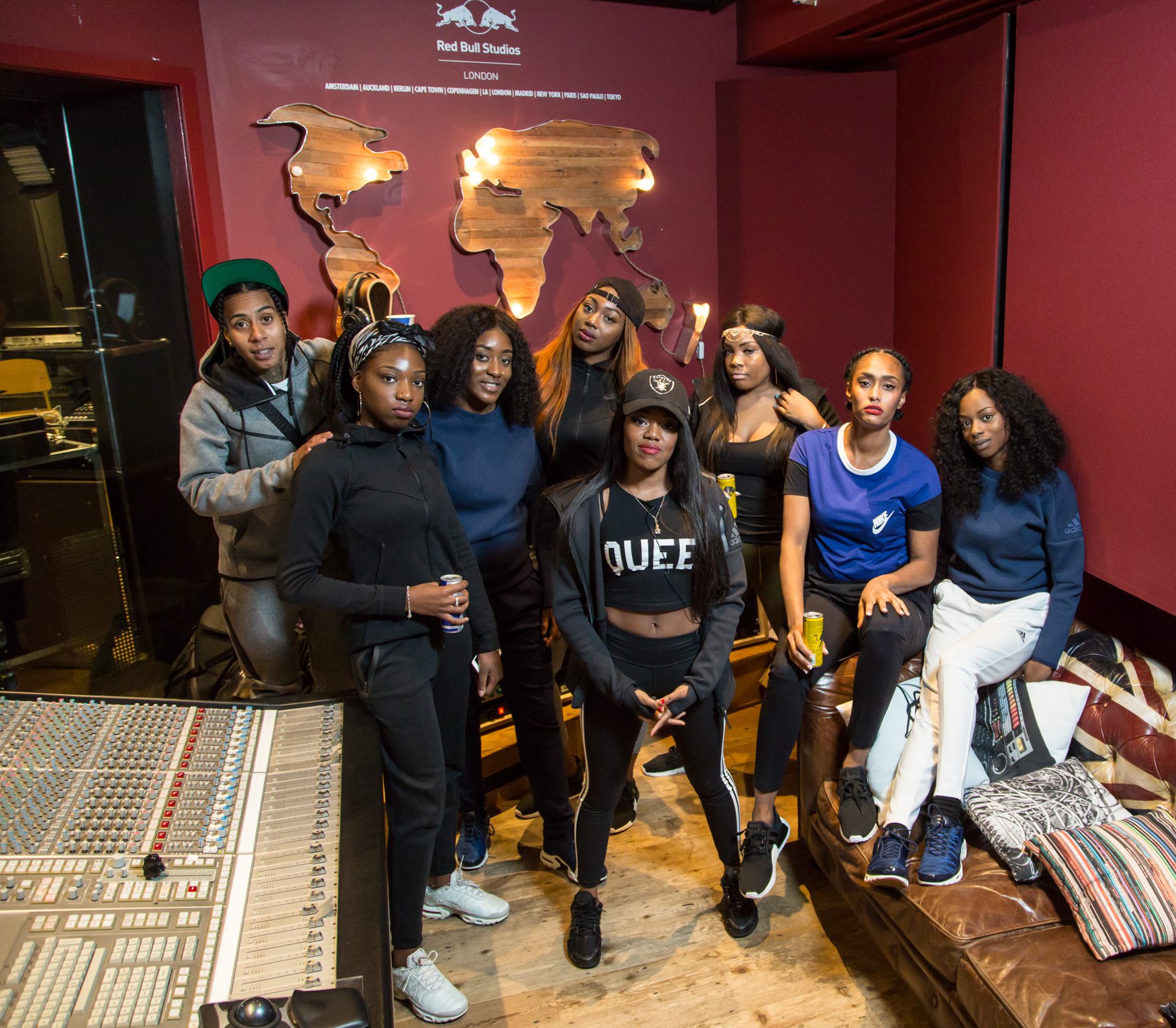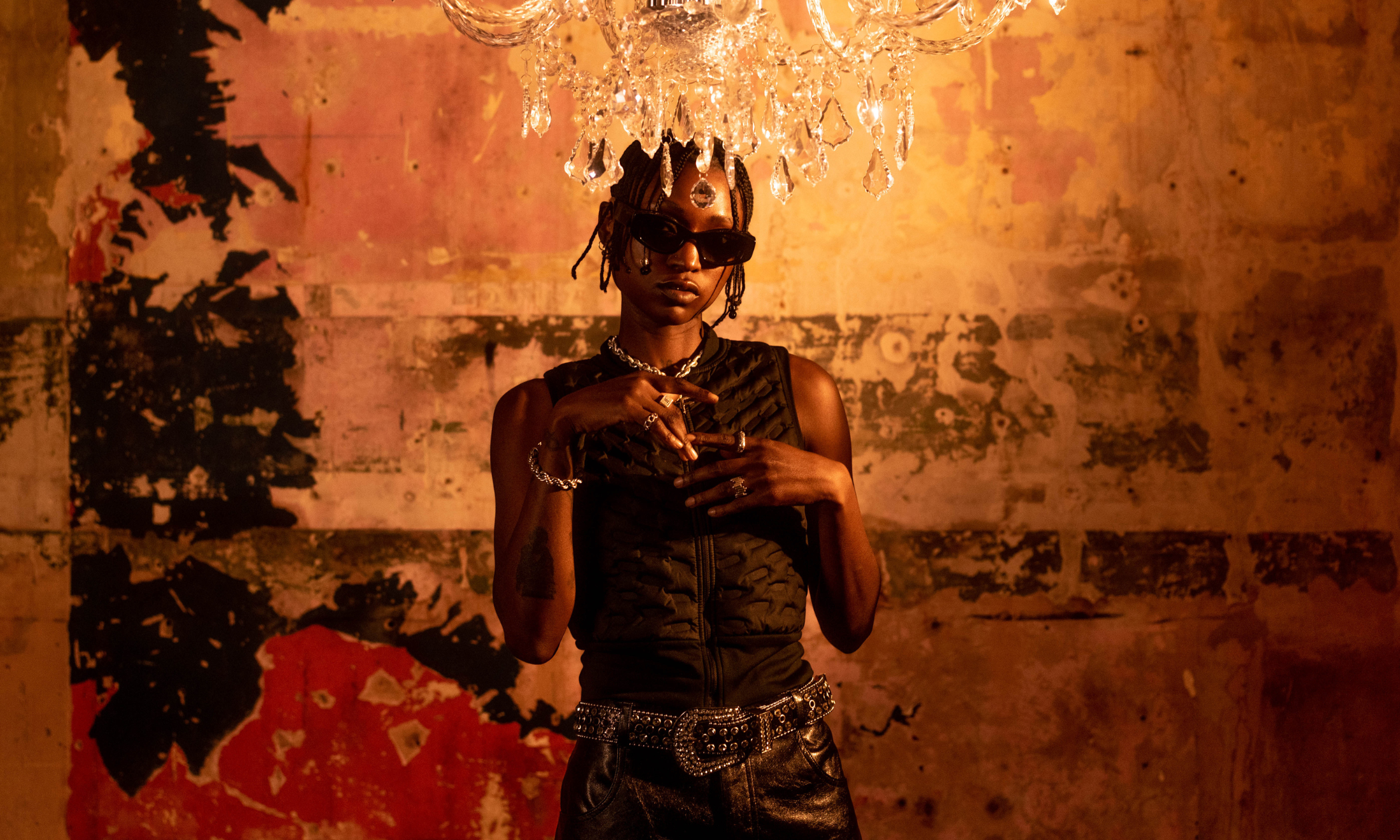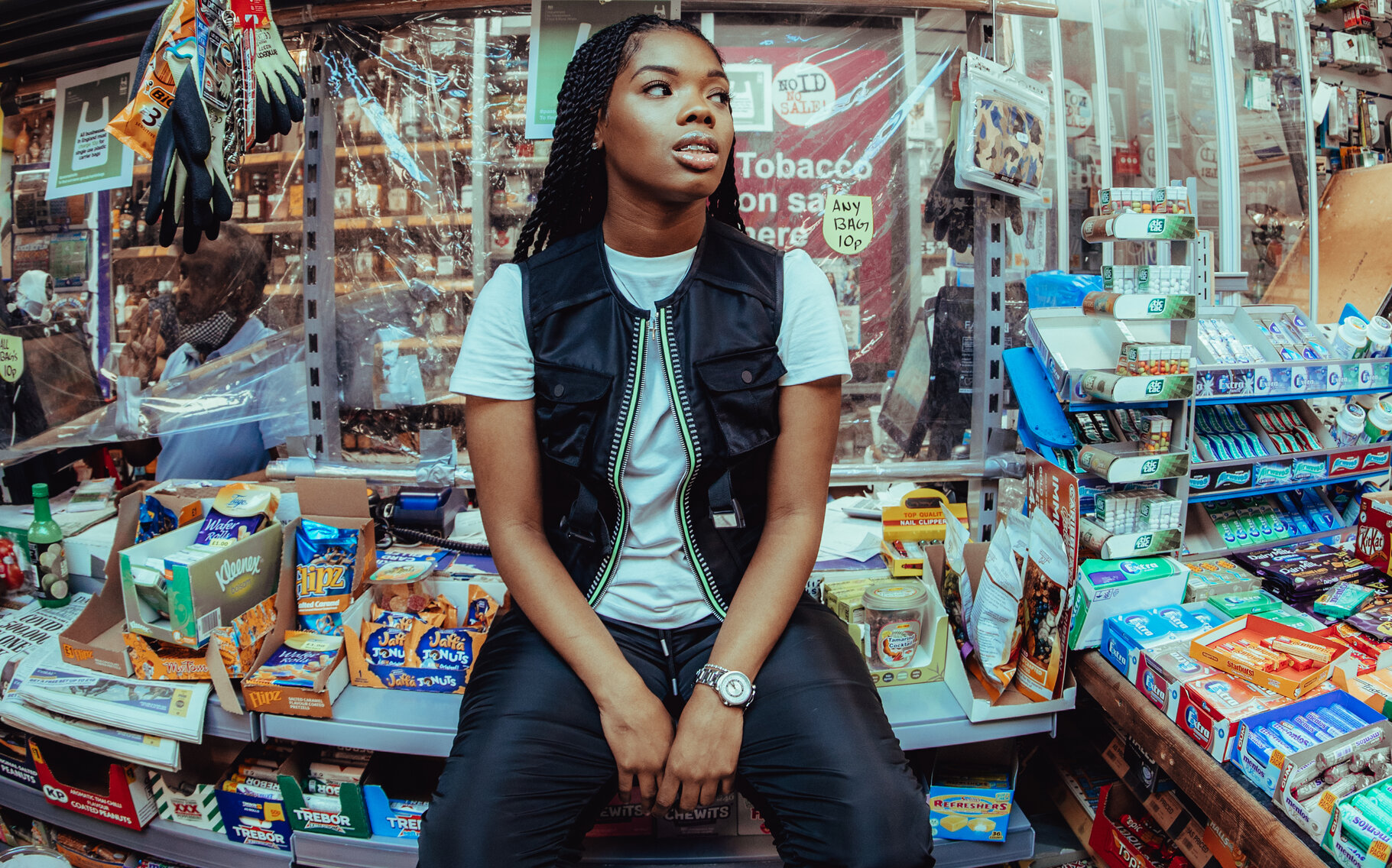
Grime sounds like what London raves were missing in the 90s. Like the silent, empty space that it filled on the pirate airwaves as it emerged from the streets of East London in the 00s, pioneered by artists such as Wiley, Chipmunk, Skepta and Kano. And now in the 10s, the sound it has morphed into; vicious rhymes blasted between male artists often spurning battles like you’ve never seen before.
I LOVE GRIME. It has made thunderous waves through the UK music scene, opening ears and turning heads as a variation on the theme of hip hop, encompassing dubstep, jungle and house. However, when I researched the origins of this genre’s 15 year journey, there was not a single mention of a woman, apart from MC Jammer’s mum’s basement, where some of the most legendary clashes (Lord of the Mics) took place. The same cannot be said anymore. Watch as the Girls in Grime pick up their microphones in a display of lyrical prowess.
When artist, Lady Leshurr, teamed up with Red Bull Music Academy, she created Girls in Grime, turning Studio A into a powerhouse full of female MCs. She shows us that this is no longer just a music space for men but a realm for women to mark their territory in. One of these extraordinary women is Alika, an MC from West London and winner of The MOBO Unsung Awards 2016. I spoke to her about her career so far, being a full-time mother and her experience taking part in this all-girl production.
[soundcloud url=”https://api.soundcloud.com/tracks/304963338″ params=”auto_play=false&hide_related=false&show_comments=true&show_user=true&show_reposts=false&visual=true” width=”100%” height=”450″ iframe=”true” /]
Like many of us, Alika tried her hand at spitting bars with the boys at school when she was 12 (those sony ericsson walkmans certainly served us all well). A few years on, she met a young producer and they continued as a duo for the following three years. She says, “It was during this time that I discovered my talent for writing lyrics. I didn’t actually start rapping seriously until 2015 when I began taking part in Twitter challenges. I also released a Warm Up video on SBTV which received a great response from the audience, that’s when I became confident that I could make a career out of being an artist”. With the title of MOBO Unsung Winner under her belt, Alika is given career support from Tilyard Music, who will help fire up her career in the music industry.
Legendary rappers such as Lauryn Hill, Missy Elliott, and Ms Dynamite have had a profound effect on Alika’s music. “I listened to a lot of old school hip hop as a child, and of course, I loved listening to Spice Girls, Gwen Stefani and all the 90s pop. Growing up with a Grenadian mother, I heard a lot of soca music and I’ve even written a few soca pieces for other artists. Looking back, I can definitely say that everything I listened to in my youth has influenced my music; I really enjoy the lyrical freedom I feel when writing bars.”
Once she decided what to make music for and who to make it for, Alika’s influence on the next generation of girls, like her daughter, became apparent. “Young girls need to understand the importance of setting your own standards, your past doesn’t have to affect your future happiness or success. I especially want to reach out to young mothers like myself who may feel like they have to face their problems alone. In today’s society, it’s getting increasingly important for girls to be taught self-worth, to take on their wildest dreams and not be afraid to chase them.”
Alika’s devotion and love for her daughter is clear, of whom she often mentions in her songs. I ask Alika how she juggles being a mum and having a full time music career. “I just take it in my stride. I make an effort to bring my daughter to any part of my work that I think she will enjoy and gain knowledge from. My mother is my manager, so I feel very blessed to have such a strong support network. I used to work full-time as a PR, so rarely got to spend time with my daughter. Now, I can do the school run and support her in a way I couldn’t before. She is the source of such a unique kind of inspiration and strength, I’m so grateful for her.”
The aforementioned female rap legends were paramount in breaking down the barrier of male dominance in hip hop. Unfortunately, MCs are still expected to be male unless stated otherwise, especially in grime. This means that when a female MC appears, one of two things happen: she will either get attention (for she is seen as one of a kind) or get ignored (compared to male contemporaries and deemed not good enough). Projects like Girls in Grime insist that this genre is not gender-reserved and that success should be based on more than just gender.
“I am aware that there are girls out there, much like myself, who have stories they want to tell that men can’t. Everyone needs someone to relate to and having female role-models in grime and the UK rap scene will help with this expression. It seems people believe there are unlimited spots for male MCs, and yet only one or two for female MCs, that doesn’t sit right with me. Our voices should be heard just as equally, there is definitely an audience that want to hear it.”
And here are their voices, loud and clear in Girls in Grime, a Studio Science workshop that brings together the best of UK female artists, who are a undoubtedly a force to be reckoned with. How did Alika get involved in this project? “One of my friends tagged me in Lady Leshurr’s tweet about the project. From there I spoke to Lady Leshurr, who told me she initially had me in mind for Girls in Grime, as she was on the panel at my MOBO Unsung audition.”
Studio A, where the track was birthed, welcomed six female artists: Alika, Madders, Monarchy 6, Ms Banks, Neveilla and Reiss Boogie. The video shows Lady Leshurr and the girls in calm confidence, as they take turns entering the booth to lay down bars to a grime beat. “Being in the studio with all the girls was a really great experience. We were all so focused and the vibe was really relaxed and positive.”
Up until now, grime has often been all about the boys who take on the bad-boy, roadman persona, what we have come to perceive as masculine traits. Does Alika think that it is necessary for a woman to take imitate the tone, accent and demeanour of a male MC in order to be authentic and successful? Absolutely not. “Who are these people that think in this way? When I rap I do so as myself, a female from a female perspective. I grew up in the same place as the men in grime, we’ve experienced similar things. However, I’m a woman, and I discuss my experiences as one in my music. Who are these people? I don’t quite understand what they are saying or where they’re coming from, maybe they haven’t heard me rap yet.”
I remarked on a phrase from her SBTV warm Up video, where she says: I don’t even like talking my business/ but if I don’t free the realness I can’t be free in this business/ and Lord knows I’m not a feminist/ but I’m so sick of these dumb youths that jump in my comments just talking hella shit. Since being a feminist became “trendy”, Alika says she would prefer to define her own beliefs on what feels right to her. “There was no particular reason [in saying I’m not a feminist] other than it rhymed and made sense to who I am as a person. We are living in the age of social media where true, honest facts can be hard to find. I wouldn’t want to attach myself to any movement because it’s popular or a trend. I form my own opinions, some of which are in agreement or disagreement with the movements currently out there – I’m too much of a free spirit to be tied to these! Being labeled or pigeon-holed is not something I’m fond of.”
As well as Girls in Grime, Alika has been in collaboration with Nadia Rose, another pertinent women setting new standards for UK MCs. “I first met Nadia Rose in 2015 when she visited my studio, Aquarius VIP, and we experimented a while on some beats. We then reconnected in September 2016, she came to the studio again, this time with Bamz, a 20 year old female producer, and we created the track Poltergeist on the Highly Flammable EP. It’s a really energetic, sassy track and I love that it was solely an all-female production. Nadia is incredibly talented and inspirational, such a pleasure to work with.”
It is a tricky paradox we find ourselves in as female artists: having to celebrate women who are succeeding despite the prejudices of society and at the same time, normalising our presence without all the bells and whistles. Thank goodness for Girls in Grime, where this balance exceeds expectation as one of the few platforms exposing female MCs in a male-dominated space.
Now in 2017, Alika has the whole year ahead of her to make even more of an impact on the music industry, how will she do it? “I’m hoping 2017 will be an exciting year for me. I’m starting work with the MOBO team in January I can’t wait to hear the feedback from the fans for the work I did on Nadia Rose’s EP. I’m keen to work with more talented artists and working on my own music – we’ll see what other opportunities appear in 2017! At the moment, I’m feeling extremely blessed.”









